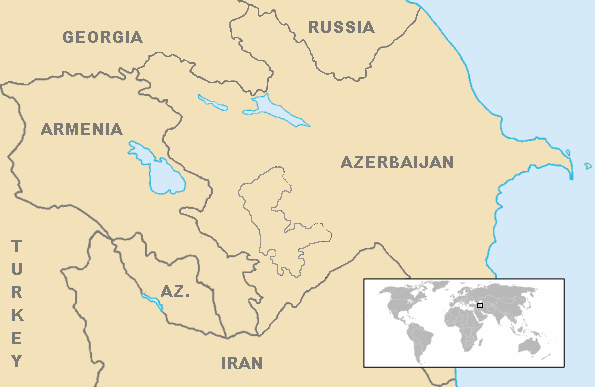Azerbaijan and Armenia started blaming each other for violating a temporary ceasefire within minutes of it coming into force on October 9 against the backdrop of the Russian and international calls to stick to the humanitarian truce.
Don’t you wonder why they don’t want the ceasefire at the moment?
If you want to make sense of the war raging between Armenia and Azerbaijan, you can read the Azerbaijan & Armenia explainer: All you need to know [in layman’s terms].
Ceasefire
Foreign ministers of Azerbaijan and Armenia “agreed” to a “humanitarian ceasefire” to recover the bodies of fallen soldiers and exchange prisoners of war, Russia’s foreign minister Sergei Lavrov announced in a statement after hosting 11 hours of talks in Moscow that ended at 3am.
Although no further details were made available, the publicly released half a page long document with 4 points essentially reaffirming what has been repeated in the past 30 years was not something they would have discussed for 10-11 hours.
We can only guess (isn’t it obvious?) that whatever they were discussing during that night didn’t go that well and, after all papers were tossed in a bin, the “humanitarian ceasefire” announced by Russia’s foreign minister in absence of his opposite numbers was most likely a last-minute scrawl to let him save face.
No Fancy for Ceasefire
The untimely ceasefire is a chance for Russia to tout a diplomatic achievement and show that it is still being reckoned with. For Azerbaijan and Armenia, it is a spanner thrown in the works:
- It is simply ill-timed. Both sides were caught off guard by the ceasefire and most likely consider it too risky to just stop the fire in the middle of the battle, especially because temporary combat positions might be visible and vulnerable. We are talking about zero trust.
- Since the military operations started on September 27, Azerbaijan has taken back some of the occupied lands but Armenia was initially denying it and later started to officially call a “tactical retreat”. So it means Armenia would seize any opportunity to get back the lost positions. Possibly, Azerbaijan also wants to move as far forward as possible before the onset of winter.
- Stopping now would be a failure difficult to explain to the domestic audience. For both sides.
- Neither side has full trust in Russia which brokered the ceasefire. They both are well aware that Russia has always pursued its own interests in the region, applied its divide-and-conquer strategy, and prefers the conflict to remain “frozen” (unresolved) for the two countries to stay in its orbit (dependent).
- Last but not least, ceasefire has become an irritating word as there was a ceasefire from 1994 up until the current eruption in September 2020. Even that ceasefire originally took many months back then to be honored. After it was signed in May 1994, there were frequent violations for the subsequent 5-6 months. The frequency eventually dropped but there were regular deadly breaches and flare-ups during the 26 years. It never brought about a solution to the conflict. And it was supposed to. It was brokered by Russia.
Given all of the above, the current situation looks like an unfinished business for both countries.
If we look at a bigger picture though, the Russian-brokered ceasefire is received as just another attempt to delay resolution if not make the conflict worse. Or it might be a trap.
This conflict is very complex and not an inch of progress has been made over the past 30 years despite the mediation led by the US, France and Russia.
The area comprising of a region called Nagorno Karabakh of about 4,400 sq km (1,700 sq miles) and some surrounding areas of of about 8,004 sq km (3,090 sq miles) are internationally recognised as part of Azerbaijan but effectively controlled by Armenia after the 1990s war. The devastating war displaced an estimated one million people and killed about 30,000 in 1988-1994. So war is over these areas:

If you want to make sense of the war raging between Armenia and Azerbaijan, you can read the Azerbaijan & Armenia explainer: All you need to know [in layman’s terms].






